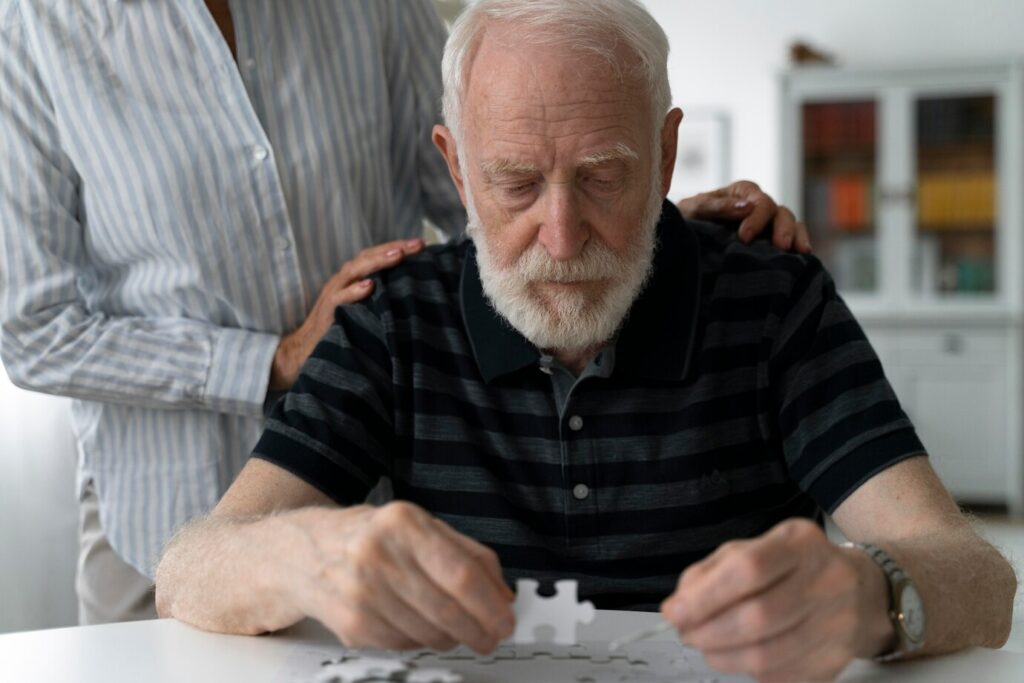Welcome to The Village at Alameda, your trusted source of expertise on memory care in Albuquerque, NM. In this comprehensive guide, we’ll delve into the intricate journey of dementia and explore the diverse memory care needs that each stage demands. Dementia is a complex condition, and by understanding its stages, you can better cater to the unique requirements of your loved ones.
What is Dementia?
Dementia is a progressive neurological disorder that affects a person’s cognitive functions, including memory, thinking, and reasoning. It can lead to a decline in the ability to perform everyday activities, impacting not only the individual but also their family and caregivers. Dementia is not a single disease but a term that describes various cognitive impairments.
Common Types of Dementia
There are several types of dementia, with Alzheimer’s disease, vascular dementia, Lewy body dementia, and frontotemporal dementia being the most prevalent. Each type has distinct characteristics, progression patterns, and memory care needs.

The Stages of Dementia
Dementia typically progresses through stages, and understanding these stages is crucial for providing appropriate memory care. While the progression may vary from person to person, here is a general overview:
Stage 1: Mild Cognitive Impairment
- In the early stages, individuals may experience subtle memory lapses.
- They can still perform daily activities independently but may need to remember names or appointments.
- Memory care involves regular monitoring, cognitive stimulation, and support.
Stage 2: Mild Dementia
- Symptoms become more noticeable, including forgetfulness, difficulty with language, and getting lost in familiar places.
- Routine becomes essential, and assistance with daily tasks may be needed.
- Memory care should include safety measures and cognitive exercises.
Stage 3: Moderate Dementia
- This stage marks a significant decline in cognitive function.
- Individuals may forget personal history, struggle with personal care, and exhibit behavioral changes.
- Memory care should focus on structured routines, specialized activities, and personal assistance.
Stage 4: Severe Dementia
- In the advanced stages, individuals lose the ability to communicate and recognize loved ones.
- Full-time care in a memory care facility is often necessary.
- Memory care involves specialized programs to ensure comfort and quality of life.
Memory Care Needs at Each Stage
As dementia progresses, memory care needs to evolve. Here’s a closer look at the specific care required in each stage:
Stage 1:
- Create a Memory-Friendly Environment: Reduce clutter, use labels, and maintain a consistent routine.
- Cognitive Stimulation: Engage in puzzles, memory games, and activities that challenge the mind.
Stage 2:
- Safety Measures: Install alarm locks and monitor wandering behaviors.
- Assistance with Daily Living: Help with dressing, grooming, and meal preparation.
- Memory Care Programs: Participate in structured memory-enhancing programs.
Stage 3:
- Structured Routines: Establish a daily schedule to reduce anxiety.
- Behavioral Management: Address mood swings and agitation through therapy and medications.
- Personalized Memory Care: Tailor activities to the individual’s interests and abilities.
Stage 4:
- 24/7 Care: Provide constant supervision and assistance.
- Palliative Care: Focus on comfort and pain management.
- Family Support: Offer emotional support to family members as they navigate the challenges.
The Importance of Professional Memory Care
Professional memory care facilities, like The Village at Alameda, are equipped to cater to the unique needs of each dementia stage. Our trained staff, specialized programs, and safe environments ensure that individuals with dementia receive the highest care and support.
Conclusion
Understanding the different stages of dementia and their memory care needs is essential for providing the best possible care to your loved ones. At The Village at Alameda in Albuquerque, NM, we are committed to helping individuals and their families navigate this challenging journey. If you have questions or need assistance with memory care, please don’t hesitate to contact us at 520-413-0293.
If you or a loved one requires expert memory care in Albuquerque, NM, contact The Village at Alameda today at 520-413-0293. We’re here to provide guidance and support on your journey through the various stages of dementia.


